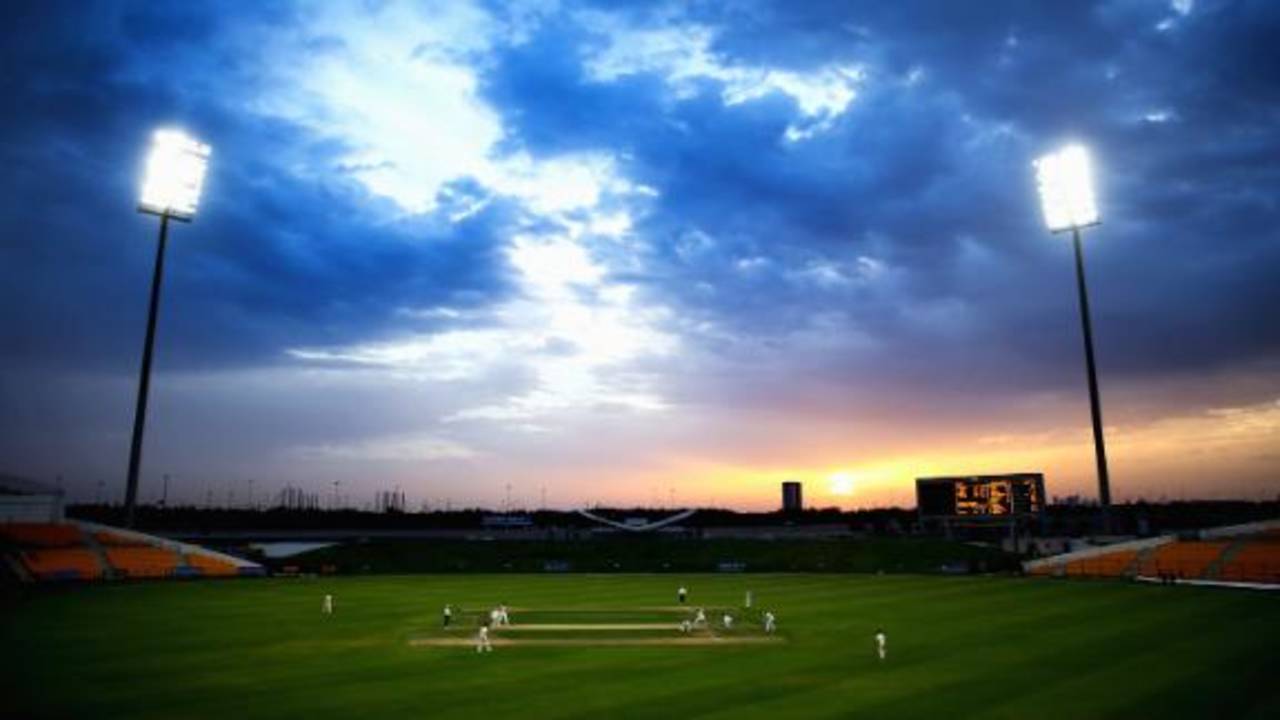Alastair Cook believes that boards should continue to explore the notion of day-night Test cricket but has echoed the views of his Australia counterpart,
Steven Smith, in saying that the Ashes does not need such a concept.
South Africa have
now agreed to play a floodlit Test against Australia in Adelaide later this year, having initially been reluctant about the idea. This means there will be two day-night Tests in the Australian season, with Pakistan also playing under lights at the Gabba.
England look set to play their first floodlit Test next year, against West Indies at Lord's or Edgbaston, although the ECB did approach the Bangladesh Cricket Board about the possibility of playing one on the tour to Bangladesh in October.
The key aim of the day-night Tests is to attract more spectators, when they are able to attend after work, but both Cook and Smith think current crowds for the Ashes are strong enough to stay with tradition.
"A lot of the games have really good attendances and it's probably not a series where you need to do it exactly at this time," Cook said.
Smith agreed. "I think it works pretty well with the red ball. Playing against England, we always get the viewers and the crowds out, so I don't think there is any issue there."
Cook said the key to the format's success in the longer term remains the quality of the pink ball. For the inaugural day-night Test in Adelaide last year, when Australia faced New Zealand, extra grass was left on the pitch in a bid to ensure the ball retained its colour.
Cook has experience of facing the pink ball when he played for MCC in Abu Dhabi
in 2015 and does not feel it has the same qualities as the red ball.
"No disrespect to the guys who make it, but on the two occasions I've played it doesn't seem to behave the same way as the red ball," he said. "I've got no idea why. But it's one of the great things about Test cricket, sometimes the ball swings conventionally, sometimes it doesn't, sometimes it reverses, but my occasions with the pink ball it didn't do any of that, then it nipped all over under twilight. The quality of the ball is vital.
"My general view of day-night Tests is that it's definitely something cricket authorities need to keep looking at because it's the way to keep the game moving forward with the times, making it more possible for spectators to come and watch."
Cricket Australia chief executive
James Sutherland however said having day-night Tests in the Ashes would be a "natural progression" and would also attract more audience in the UK because of more suitable timings.
"I respect the views of Steven and Alastair… the Ashes is a great contest and will no doubt attract a huge audience both at the grounds and on television, but the facts of the matter are by playing day-night Tests, we're going to get even bigger audiences at the game and on television," Sutherland said.
"We've played one day-night Test match and this summer we have two in the schedule, so I think there's a natural progression for us to get to a point where Ashes Test matches are played as day-night games. The Ashes series is still a long way off and we want to get through this summer first, but we will play somewhere between zero and two day-night Tests during the Ashes in 18 months' time.
"The time [of day-night Tests] shifts games into a more appealing time of day in the UK. We all need to stay very open-minded to this [and] continue to progress and build everyone's confidence."
Sutherland also said there will not be any changes to the format of matches in Sydney (traditionally the venue of the New Year's Test), Melbourne (traditionally the venue of the Boxing Day Test) and Perth. "There's no doubt from our point of view Sydney and Melbourne are landmarks in the calendar and they work very well as day games at that time of year when everyone is on holiday. Perth is already time-shifted into the eastern states with the three-hour time difference."
Andrew McGlashan is a deputy editor at ESPNcricinfo
